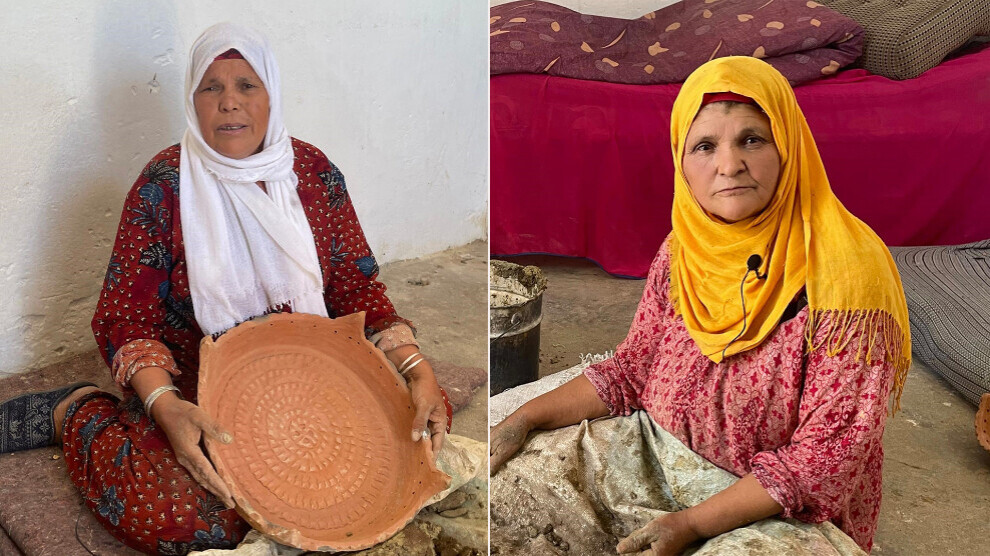Women of Kasserine shape clay
Women of Kasserine make clay pots, preserving their heritage. To them, clay craft is not only a source of income but also a memory and a cultural resistance that keeps the past alive.

IHLAS HAMRUNI
Tunisia- The first light of morning is filtering through the windows of a small workshop in Kasserine, a province located in west-central Tunisia. The scent of wet soil and the smoke from burning wood commingles. Inside this workshop, women shape clay, writing stories from clay.
For these women, clay craft is not only a source of income but also a way of life connecting them to the land, the past and the roots. Each piece of clay tells a life story and a resistance against the imposition of the modern age
‘We must preserve this craft for the next generations’
They first grind the clay and then knead it until it is ready for shaping. “We put it in the sun to dry it,” Saliha Omri, one of these women, told NuJINHA. “Making a tagine (a clay pot) requires high-quality materials. We must preserve this craft for the next generations.”
Although some of the tagines made by them sometimes break, these women never give up. “We reshape them. This craft is not only a source of income for us but also a valuable legacy we carry on our shoulders,” Saliha Omri said, talking about the health benefits of clay pots. “Cooking in clay pots is healthier and makes the food taste better.”
These women buy clay from local markets or collect it in the mountains. They then hold it in water for a while and knead it well until it is ready for shaping. “We use clay to make tagine, pots and decorative bowls. After shaping these products, we leave them in the sun to dry them and put them in a traditional oven.”
‘This is our mission’
Saliha Omri thinks that preserving this craft is their mission. “We must preserve it because it is part of our precious heritage. We must pass down this craft to the next generations.”
Barkana Issaoui, another woman working in the workshop, making clay pots requires great effort. “You have to manage your time very well. Working conditions in this sector are extremely difficult and tiring. We are too old to work under these conditions. We need someone to support us and preserve our clay heritage.”
